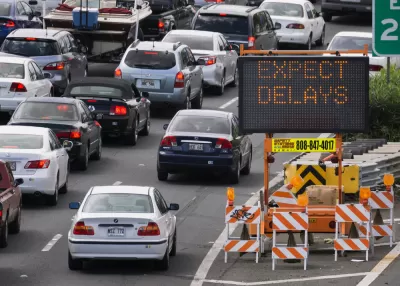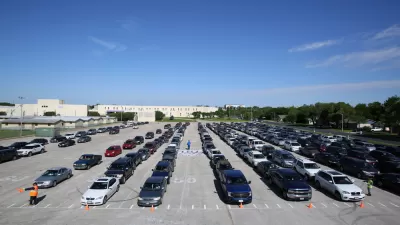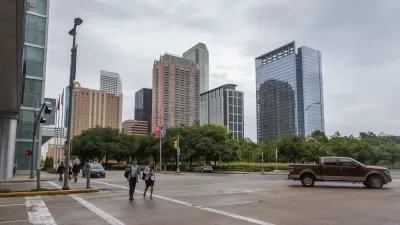A new report examines how governments can encourage citizens to use alternatives to private cars in order to reduce car dependency.

A new report by the International Transport Forum analyzes fiscal policies and other instruments for managing urban traffic and correcting current policy biases that favor automobile travel over more sustainable and affordable transport options. The report also reviews international case studies of integrated transportation and land use planning to make transportation more efficient and reduce congestion on streets.
Among the conclusions made, with much more detail, in the report:
- Cities need more efficient, less damaging and fairer use of scarce space.
- The guiding principle for managing car use is to enable citizens to carry out their daily activities without a car and not having to rely on cars to satisfy their transport needs.
- Significantly reducing the modal share of private vehicles in urban mobility implies significant long-term change in the spatial form of cities.
- The most effective urban mobility management systems deploy road pricing schemes together with road space allocation and land-use planning instruments.
FULL STORY: Reversing Car Dependency

Study: Maui’s Plan to Convert Vacation Rentals to Long-Term Housing Could Cause Nearly $1 Billion Economic Loss
The plan would reduce visitor accommodation by 25,% resulting in 1,900 jobs lost.

North Texas Transit Leaders Tout Benefits of TOD for Growing Region
At a summit focused on transit-oriented development, policymakers discussed how North Texas’ expanded light rail system can serve as a tool for economic growth.

Why Should We Subsidize Public Transportation?
Many public transit agencies face financial stress due to rising costs, declining fare revenue, and declining subsidies. Transit advocates must provide a strong business case for increasing public transit funding.

How to Make US Trains Faster
Changes to boarding platforms and a switch to electric trains could improve U.S. passenger rail service without the added cost of high-speed rail.

Columbia’s Revitalized ‘Loop’ Is a Hub for Local Entrepreneurs
A focus on small businesses is helping a commercial corridor in Columbia, Missouri thrive.

Invasive Insect Threatens Minnesota’s Ash Forests
The Emerald Ash Borer is a rapidly spreading invasive pest threatening Minnesota’s ash trees, and homeowners are encouraged to plant diverse replacement species, avoid moving ash firewood, and monitor for signs of infestation.
Urban Design for Planners 1: Software Tools
This six-course series explores essential urban design concepts using open source software and equips planners with the tools they need to participate fully in the urban design process.
Planning for Universal Design
Learn the tools for implementing Universal Design in planning regulations.
Ascent Environmental
Borough of Carlisle
Institute for Housing and Urban Development Studies (IHS)
City of Grandview
Harvard GSD Executive Education
Toledo-Lucas County Plan Commissions
Salt Lake City
NYU Wagner Graduate School of Public Service





























